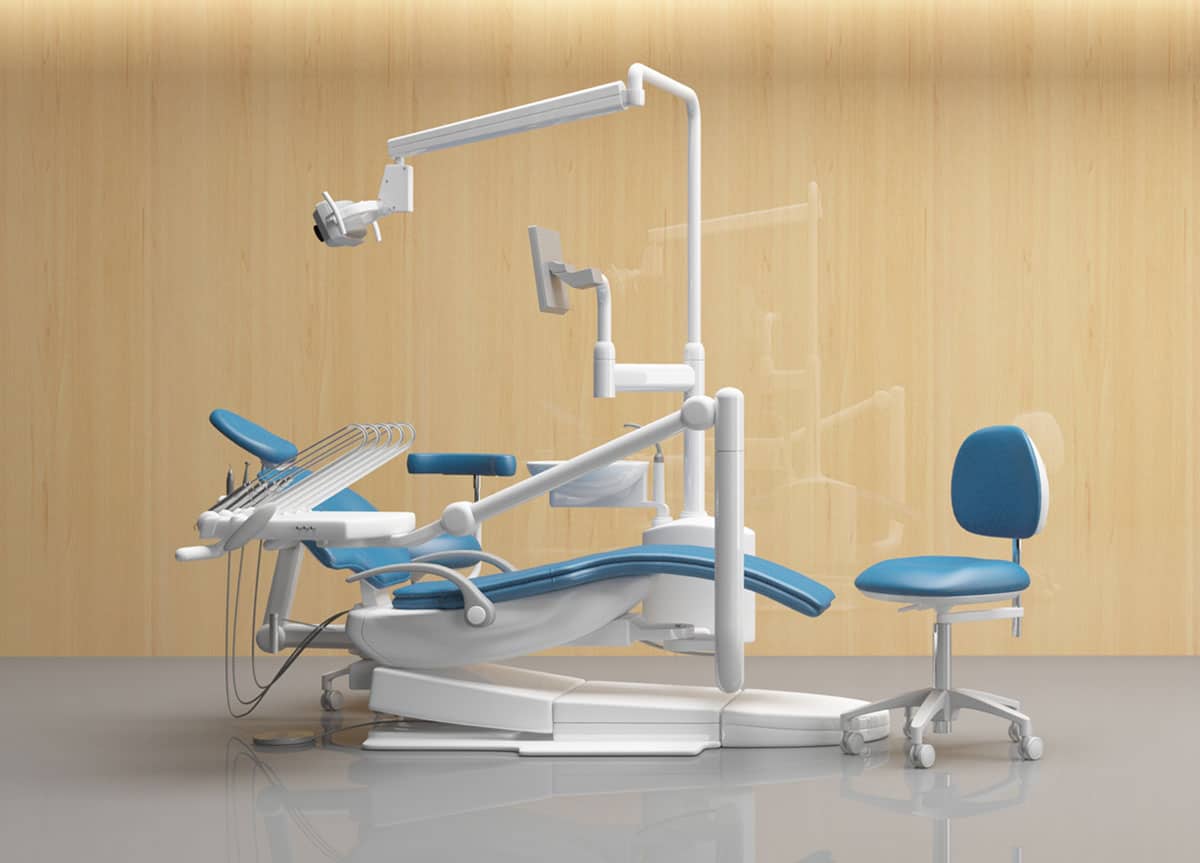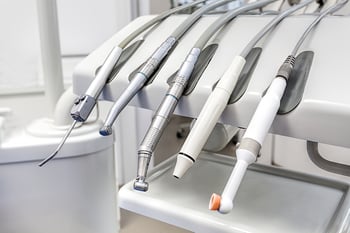
Starting a new dental practice can be a daunting but incredibly rewarding endeavor. Not only will you need to secure financing and find a suitable location, but you also need to comply with legal and healthcare regulations, hire and manage staff, market your business, and provide excellent patient care.
What do you need to know about starting your own dental practice? Remember that you do not have to go through this process alone, and experts are available to help you.
The first step towards establishing a new dental practice involves meticulous planning and research. This is crucial for understanding your market, setting clear goals, and identifying potential opportunities and challenges.
Having a clear vision of your practice will guide all of your subsequent decisions. Consider the type of practice you want to run, the services you want to provide, and the type of patients you wish to serve.
Understanding the demand in your intended area will help you forecast your potential customer base. Consider demographics, general oral health awareness, and the existing dental practices in the area. This will help you identify an opportunity for your practice to thrive.
By understanding what your competitors offer, you can differentiate your practice and find a unique selling point. Look into the services they offer, their pricing structure, and their marketing efforts. Then, figure out a gap where you feel like you can acquire more patients and set your practice up for success.

After conducting your research, it's time to focus on the financial aspects of your practice. This includes creating a robust business plan, establishing a legal structure, and securing funding.
Your business plan is the blueprint for your dental practice. It should include details such as your practice’s mission statement, target market, marketing, and growth strategies, as well as projected revenues and expenses.
Start-up costs for a dental practice can be significant, so it's important to budget accurately. Consider expenses like property lease or purchase, equipment, insurance, staffing, and marketing. Once you have an estimate, explore various funding options such as personal savings, loans, or investors.
The legal structure you choose will have implications for your personal liability, tax obligations, and the ability to raise additional funds. Consult with a lawyer or business consultant to determine the best structure for your situation.
An accountant can help you understand the financial metrics that matter for your business, your tax obligations, and strategies to manage your practice's finances effectively. An accountant can help you find ways to save money on your taxes while also ensuring you use the resources of your practice to raise more capital.
Insurance is crucial to protect you and your practice from potential liabilities. At a minimum, you'll need malpractice insurance, general liability insurance, and property insurance. Reach out to an insurance professional who can help you figure out which insurance policies are best for your business.
The physical location of your dental practice plays a significant role in attracting and retaining patients. Carefully consider your practice's location, layout, and equipment.
Your practice should be conveniently located for your target patient base. Consider factors such as ease of access, available parking, visibility from the road, and proximity to other healthcare facilities. You should also decide if you want to purchase or lease property.
The layout of your practice can significantly impact patient satisfaction and staff efficiency. Ensure you have adequate space for waiting areas, treatment rooms, and equipment while considering patient privacy and comfort.
Invest in high-quality, reliable dental equipment. While this can be a significant upfront cost, it can save you money and stress in the long run. You need to purchase equipment that has been proven to be safe and effective. It should also help you improve your efficiency and see more patients daily.
Compliance with legal and healthcare regulations is critical to avoid fines, lawsuits, and damage to your reputation.
Understand and adhere to all relevant healthcare regulations, including patient privacy laws and safety protocols. You must make sure you protect all confidential patient information to not only ensure the confidence of your patients but also avoid potential regulatory fines and sanctions.
Knowing employment laws can help you avoid legal issues as you hire and manage your staff. An attorney can provide valuable advice and ensure that you're compliant with all regulations. That way, you provide your employees with the protection they deserve while also protecting your practice as it gets started.
Your team will play a significant role in the success of your practice. It's crucial to hire the right people and provide them with the necessary training and support.
Consider the size of your practice, the services you offer, and your expected patient volume to determine your staffing needs. Additionally, take into account your operating hours and whether you plan to offer emergency services, as this may necessitate additional staff or flexible shifts. Ensuring the right mix of professionals not only enhances your practice’s service delivery but also helps prevent overworking your team, thus reducing staff turnover.
A comprehensive employee handbook will help set expectations for your staff and provide guidelines for common scenarios in the workplace. It also serves as a reference point for both employees and management, fostering transparency and trust within the organization. Moreover, a well-structured handbook can mitigate potential legal disputes and misunderstandings, as it stipulates company policies and procedures.
Regular training ensures that your team stays updated on the latest practices in dental care and customer service. It also provides an opportunity to improve team cohesion and operational efficiency. Moreover, continuing education can increase job satisfaction and retention rates, as it allows your employees to progress in their careers and feel more valued within the practice.
Your patients are the heart of your practice, and providing them with excellent care is essential.
Offering a range of services can help you attract and retain patients. Make sure to consider your market research and the skills of your team when deciding on these. Moreover, diversifying your services may reduce the need for patient referrals, keeping your patients within your practice. This could include offering both general and specialty services, like orthodontics or periodontics, depending on your expertise and resources.
Efficient scheduling systems minimize patient wait times and ensure that your team can handle the workload. Consider investing in dental practice management software to streamline these tasks. This kind of software can also provide additional benefits, such as automated reminders for patients, reducing the likelihood of missed appointments. Additionally, an efficient scheduling system also ensures that you adequately utilize your resources, maximizing your potential revenue.
Having clear protocols helps ensure consistent, high-quality patient care. Make sure to document these protocols and train your staff on them. This approach can lead to better patient outcomes and satisfaction, increasing the likelihood of referrals and positive reviews. Further, these protocols should be flexible enough to be adapted to the unique needs of individual patients, but structured enough to ensure a standardized and high level of care.
Starting a new dental practice can be a challenging yet rewarding process, and you don't have to navigate this journey alone. The Dental and Medical Counsel team is here to assist you with expert advice and support, helping you avoid common mistakes and set a solid foundation for success. Our experienced team can guide you in all areas of starting a dental practice, from initial planning and financial structuring to regulatory compliance, staffing, and patient care.
Don't hesitate to contact us to learn more about how Dental and Medical Counsel can help you start your dental practice. We look forward to partnering with you on this exciting journey.
Frequently Asked Questions
Q: How do I define the goals and vision for my dental practice?
A: Defining the goals and vision for your dental practice involves considering the type of practice you want to run, the services you want to provide, and the specific patient demographic you aim to serve.
Q: Why is market research important when starting a dental practice?
A: Market research is crucial for understanding the demand in your intended area, identifying potential opportunities, and forecasting your potential customer base. It helps you make informed decisions about your practice's positioning and services.
Q: How can I differentiate my dental practice from competitors?
A: To differentiate your practice, research local competitors to understand their services, pricing structure, and marketing efforts. Identify a unique selling point or service gap that allows your practice to stand out and attract more patients.
Q: What should be included in a comprehensive business plan for a dental practice?
A: A comprehensive business plan should include your practice’s mission statement, target market, marketing strategies, and projected revenues and expenses. It serves as the blueprint for your practice's success.
Q: What are the startup costs involved in opening a dental practice?
A: Startup costs for a dental practice include property lease or purchase, equipment, insurance, staffing, and marketing. It's important to accurately budget and explore various funding options, such as personal savings, loans, or investors.
Q: Why is it essential to establish a legal structure for a dental practice?
A: The legal structure affects personal liability, tax obligations, and fundraising ability. Consulting with a lawyer or business consultant helps determine the best legal structure for your situation.
Q: What types of insurance coverage are necessary for a dental practice?
A: Essential insurance coverage includes malpractice insurance, general liability insurance, and property insurance. Consulting with an insurance professional can help determine the best policies for your business.
Q: How do I choose a suitable location for my dental practice?
A: Choose a location that is conveniently accessible for your target patient base, with considerations for parking, visibility, and proximity to other healthcare facilities. Decide whether to purchase or lease property based on your business plan.
Q: Why is the layout of a dental practice important?
A: The layout significantly impacts patient satisfaction and staff efficiency. Ensure adequate space for waiting areas, treatment rooms, and equipment while considering patient privacy and comfort.
Q: What legal and regulatory compliance measures should be taken when starting a dental practice?
A: Adhering to healthcare regulations, including patient privacy laws and safety protocols, is critical. Additionally, familiarize yourself with employment laws to ensure compliance in staff management and hiring processes.
At Dental & Medical Counsel, we've been instrumental in realizing the practice goals of countless dentists. Whether you're looking to purchase, launch, or sell a dental practice, our expertise is your guide. Beyond the initial stages, we're committed to ensuring your dental practice remains legally compliant.
We provide comprehensive support, including employment law protections, dental contract reviews, and assistance with dental employment agreements. Additionally, we specialize in incorporating dental practices and securing trademarks. And for long-term planning, our services extend to helping dentists with succession and estate planning. Trust us to be your partner in every step of your dental practice journey.
.jpg?width=300&height=396&name=Ali%20Website%201_edited%20(1).jpg)
About Ali Oromchian, Esq.
Your Dental Lawyer
Ali Oromchian, JD, LL.M., is a leading legal authority in dental law and the founding attorney of Dental & Medical Counsel, PC, with over two decades of experience. His deep connection to dentistry comes from his wife's nearly two-decade-long career as a pediatric dentist.
This personal insight fuels his dedication to empowering dentists to navigate their legal challenges and achieve their practice goals. In doing so, Ali has helped thousands of doctors open their practices while maintaining legal compliance.
Ali is frequently quoted and contributes articles to dental publications, including the California Dental Society, Progressive Dentist, Progressive Orthodontists, Dentistry Today, Dentaltown, and The New Dentist magazines, further showcasing his commitment to the dental community.

Stay updated with industry news!
1904 Olympic Blvd, Suite 240
Walnut Creek, CA 94596
Phone: 925-999-8200
Fax: 925-884-1725
frontdesk@dmcounsel.com
| Monday | 8:00AM - 6:00PM |
| Tuesday | 8:00AM - 6:00PM |
| Wednesday | 8:00AM - 6:00PM |
| Thursday | 8:00AM - 6:00PM |
| Friday | 8:00AM - 6:00PM |
| Saturday | Closed |
| Sunday | Closed |